Search Results For: china

How to study with Bitcoin payments
Bitcoin at University
Why in Prague
Bitcoin worldwide recognition
Open your free digital wallet here to store your cryptocurrencies in a safe place.

Bank of England will create its own cryptocurrency
The Bank of England announced its decision to create its own digital currency.
The cryptocurrency will be called RSCoin and it will use the blockchain, the decentralized ledger where bitcoin transactions are written and executed.
More Centralized Control
RSCoin has been developed by researchers at the University College of London.
How could this be positive?
Even if RSCoin is centralized and the opposite thing of Bitcoin, we could say that it is positive as it means that worldwide Central Banks are starting to give importance to cryptocurrencies.
However, RSCoin has its own benefits: for example no double spending, non-repudiable sealing, timed personal audits, universal audits and exposed inactivity.
Read the complete documentation
Univerisity College of London researches George Danezis and Sarah Meiklejohn published an abstract about RSCoin.
The full whitepaper is intitled “Centrally Banked Cryptocurrencies”.
The abstract begins from the bitcoin history, to explain everyone the impact of the digital currencies not only in the finance world:
“Recently, major financial institutions such as JPMorgan Chase and Nasdaq have announced plans to develop blockchain technologies. The potential impacts of cryptocurrencies have now been acknowledged even by government institutions: the European Central Bank anticipates their “impact on monetary policy and price stability”.
People’s Bank of China and its own cryptocurrency
In January 2016, the People’s Bank of China commented about its plans to launch its own digital currency and create a new financial infrastructure for the country.
The project started in 2014, when researches began to study cryptocurrencies related to business operations.
People’s Bank of China commented:
“The issuance of digital currency can reduce the significant costs of issuing and circulating traditional currencies, improve the convenience and transparency of economic transactions, reduce money laundering, tax evasion and other criminal acts, enhance the central bank’s control of over the money supply and currency circulation, better support economic and social development and aid in extending financial services to under-served populations”.
Open your free digital wallet here to store your cryptocurrencies in a safe place.
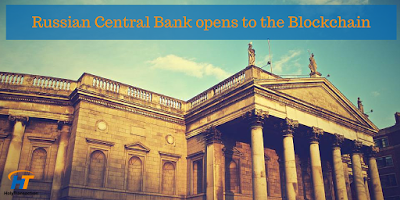
Bank of Russia is working on the blockchain
 |
Previous statements in Russia
How banks want to improve their users base
“Users of bitcoin and other cryptocurrencies now number 200,000, with only the US, China and Germany having higher numbers”, reported member of the Russian State Duma, Andrei Lugovoi.
Open your free digital wallet here to store your cryptocurrencies in a safe place.
HolyTransaction’s Bitcoin Monthly Roundup of January 2016
Thank you for reading our newsletter with the previous month’s best Bitcoin articles!
We tweet more cryptocurrency news and insights daily @HolyTransaction
Open your free digital wallet here to store your cryptocurrencies in a safe place.

Australia investigating banks for anti-competitive behavior when closing Bitcoin company accounts
 Australian authorities are looking into the bank account closures of several Bitcoin companies over the last few years. Specifically, the investigation is looking at anti-competitive behavior. Over the last year, bank actions have increasingly embraced blockchain technology instead of shunning it in the form of bank account closures. Though this type of account closure, for simply being associated with Bitcoin, is a common occurence in the United States, China, and some European countries as well, the Australian authorities are the first to look into at scale – a harrowing victory for those using blockchain technology. The Australia Competition and Consumer Commission (ACCC) chairman, Rod Sims, told the Australian Financial Review:”We are asking the banks why they acted as they did and what contact there was between them.“If ground reports from major Bitcoin companies such as BTC-e and OKCoin, that lost their accounts at the National Australia Bank, are to be believed, the contact was sparse and uninformative. Sims confirmed that the investigation had been ongoing for some time. Australian Senator Matthew Canavan also commented on the investigation:
Australian authorities are looking into the bank account closures of several Bitcoin companies over the last few years. Specifically, the investigation is looking at anti-competitive behavior. Over the last year, bank actions have increasingly embraced blockchain technology instead of shunning it in the form of bank account closures. Though this type of account closure, for simply being associated with Bitcoin, is a common occurence in the United States, China, and some European countries as well, the Australian authorities are the first to look into at scale – a harrowing victory for those using blockchain technology. The Australia Competition and Consumer Commission (ACCC) chairman, Rod Sims, told the Australian Financial Review:”We are asking the banks why they acted as they did and what contact there was between them.“If ground reports from major Bitcoin companies such as BTC-e and OKCoin, that lost their accounts at the National Australia Bank, are to be believed, the contact was sparse and uninformative. Sims confirmed that the investigation had been ongoing for some time. Australian Senator Matthew Canavan also commented on the investigation:
“We have strong laws against one business obstructing another business competing against it. These laws are even tougher for those companies that have the privileged position of a significant market share. Our banks wield great influence in the market and they have a great responsibility under our laws to not misuse that position. I am not sure if that has happened in this instance but there is no doubt that digital currencies do pose a threat to business of banks.”
Australian Senate that Might Actually Understand Bitcoin and its Promise
A Labor Party Senator, Sam Dastyari, was not surprised to hear about the ACCC investigation. He had previously chaired the Senate investigation into digital currencies. At this time, banks such as the National Australia Bank and other similarly sized institutions around the world are delving into blockchain technology. If anything, this is a clear indication that the swift actions of last year, where both domestic and international Bitcoin companies lost their accounts at Australian banks, were anti-competitive in spirit. Even without the emerging facts regarding bank’s research, investment, and involvement with blockchain projects, the majority of domestic companies brought down by Australian bank action were providing services that were in essence competing with banks.Australia has a large immigrant population from South East Asia that sends remittances back home. Some of the largest Bitcoin remittance companies are based in South East Asia in countries like the Phillipines or India. In Indonesia, Bitcoin is buyable at any of ten thousand plus IndoMaret stores. Australia now seems aptly prepared to benefit from the coming Bitcoin technology boom (bubble as called by some). Once the investigation is over, and banks are 100% clear on what not to do to Bitcoin companies, expect to see more Bitcoin companies return to Australia.
Open your free digital wallet here to store your cryptocurrencies in a safe place.
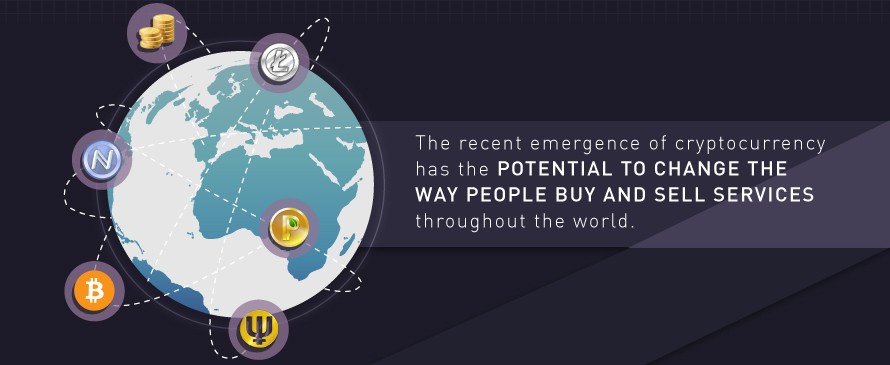
Bitcoin vs. banking: an infographic
 That’s not the only infographics that the people over at Visual Capitalist have made regarding the subject of Bitcoin. Back in February of this year Visual Capitalist released an infographic entitled, “The Definitive History of Bitcoin” which explores the history of Bitcoin ranging from; the Bitcoin design paper by Satoshi Nakamoto that was published back in October of 2008, the first real transaction with bitcoins, the rise and downfall of Mt.Gox, and ends in December when China announced they would not allow banks to handle bitcoins.
That’s not the only infographics that the people over at Visual Capitalist have made regarding the subject of Bitcoin. Back in February of this year Visual Capitalist released an infographic entitled, “The Definitive History of Bitcoin” which explores the history of Bitcoin ranging from; the Bitcoin design paper by Satoshi Nakamoto that was published back in October of 2008, the first real transaction with bitcoins, the rise and downfall of Mt.Gox, and ends in December when China announced they would not allow banks to handle bitcoins.Open your free digital wallet here to store your cryptocurrencies in a safe place.
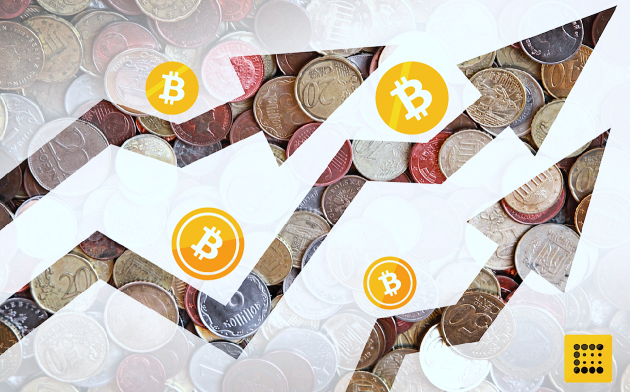
How the Bitcoin landscape is evolving in 2014
(CoinDesk) Like any new industry, there are so many areas to explore in the bitcoin space that sometimes make a week’s worth of developmentsit feel like a month or two have gone by.
1. Big-name retailers jumping on board
2. A warming regulatory climate
3. VC firms keep betting big
4. Building on the block chain
5. New emphasis on transparency
Open your free digital wallet here to store your cryptocurrencies in a safe place.
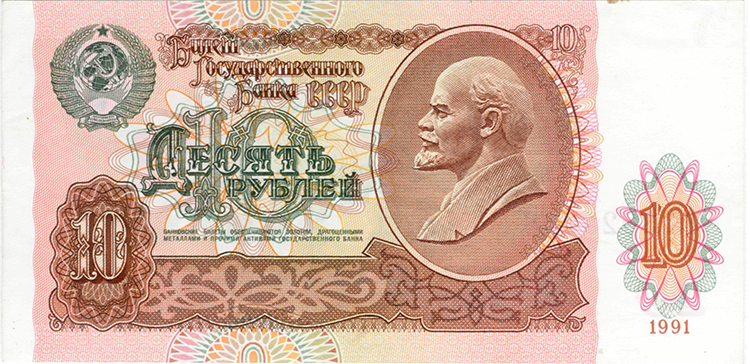
Cryptocoins for good: Cryptocurrencies Empowering Citizens Against Oppressive Governments
How cryptocurrencies can change the balance of power between dictators and citizens
the “control by the ruble” of the Soviet Gosbank, to the dual currency
system in Cuba, China’s overvaluation of the Yuan, or the exchange
controls in countries like Venezuela and Iran, regimes of all types have
relied on these kind of controls to rein, or at least try to rein,
capital flights, inevitable when -sooner or later- markets try to
correct the excesses committed by money-hungry “revolutions”.
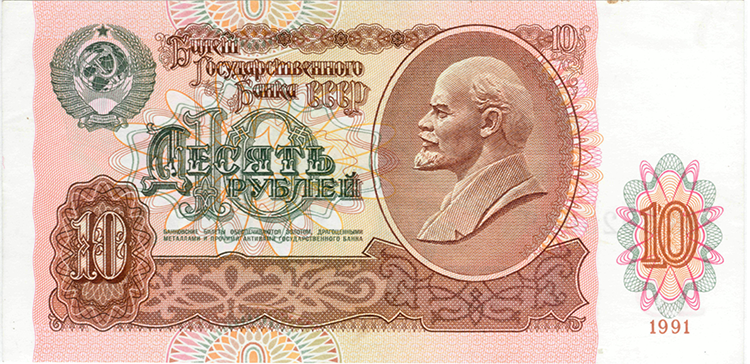 |
| The Gosbank controlled the currency markets using what it came to be known as the “control by the ruble” |
citizens are usually the most affected by such currency controls: as a
pseudo-monopoly is established, a black-market is instantly created and
exchange rates climb inexorably, specially in left-leaning regimes where
the government aims for greater control of all aspects of the economy,
affecting the efficiency of the production system and pushing the
trade-balance the wrong way, increasing in consequence the amount of
foreign currency required to cover internal demand. In short, more
expensive currency is required to buy each time more stuff, the result?
Rampant inflation and even more poverty.
Marxist theory says that the structure of society must be based in
keeping people in poverty, ruled by an upper class with certain rules,
norms and such in order so they can keep people like that. This
old-proven-wrong-policy is still used by many governments today, in
February 2014, for example, some education minister of a Latin American
country said that the government “wasn’t going to take people out of
poverty so they can become political opponents”. This proves that
currency controls are not a consequence of failed economic policies, but
tools for the governments to exert repressing power over its citizens.
what would happen to oppressive regimes if they were to lose control of
the currency exchange, so the people is free to manage their wealth
beyond the power of government currency controls? Currency
decentralization is not new, 20th century economist and Nobel Prize
Winner, Friedrich August Von Hayek (F.A. Hayek), theorized extensively
on this subject, and though polemic, his writings provided an important
part of the theoretical framework for modern economics, specially in
areas such as theory of money and economic fluctuations.In his book Theory of Liberty he wrote:
“The
experience of the last fifty years has taught most people the
importance of a stable monetary system. Compared with the preceding
century, this period has been one of great monetary disturbances.
Governments have assumed a much more active part in controlling money,
and this has been as much a cause as a consequence of instability. It is
only natural, therefore, that some people should feel it would be
better if governments were deprived of their control over monetary
policy. Why, it is sometimes asked, should we not rely on the
spontaneous forces of the market to supply whatever is needed for a
satisfactory medium of exchange as we do in most other respects?It
is important to be clear at the outset that this is not only
politically impracticable today but would probably be undesirable if it
were possible. Perhaps, if governments had never interfered, a kind of
monetary arrangement might have evolved which would not have required
deliberate control; in particular, if men had not come extensively to
use credit instruments as money or close substitutes for money, we might
have been able to rely on a self-regulating mechanism. This choice,
however, is now closed to us. We know of no substantially different
alternatives to the credit institutions on which the organization of
modern business has come largely to rely; and historical developments
have created conditions in which the existence of these institutions
makes necessary some degree of deliberate control of the interacting
money and credit systems (my emphasis). Moreover, other circumstances
which we certainly could not hope to change by merely altering our
monetary arrangements make it, for the time being, inevitable that this
control should be largely exercised by governments”
 |
| Governments have assumed a much more active part in controlling money, and this has been as much a cause as a consequence of instability F.A. Hayek |
what if it was no longer inevitable? During the 20th century creating
and managing currencies was only possible for governments, so it was in
essence exclusively a political matter, but technology is changing that,
money issuing is not only government turf anymore, they now must
compete with cryptocurrencies. In governments with an effective rule of
law, this can be fair competition, for example, currencies can be
somehow regulated -as the IRS recently did in the US- and a legal
framework can be established so everyone can play by the rules. But,
there are many countries where the line between state and nation is
blurred, these countries may also take two additional paths, they can
prevent financial institutions or businesses from transact with
cryptocurrencies (e.g. Colombia and China) or they can declare an
outright ban (as it is rumored about China every single day). In both
scenarios cryptocoins could have a very important role, in the former
-while remaining legal- they can create a new channel for the flow of
foreign currencies, in the latter they can work as a relief valve, as an
alternative for the black market. In any case, by increasing the supply
of foreign currency, these coins can effectively push prices down, with
all the benefits that comes with it.
once, the development model that could arise from an efficient
cryptocoins market presents a development plan that is not based on
plain charity, in giving away something with the hope that the recipient
will make a good use of it and luckily return it back in future
productivity. People cannot only mine their own coins but they can rest
assure that the value of such money will be subject to fair rules of
supply and demand, not to devaluation-based political planning; and most
important, they may not be held hostage in poverty by exchange
controls, giving back to them a little of that sovereignty that
dictators keep claiming or themselves.
Open your free digital wallet here to store your cryptocurrencies in a safe place.
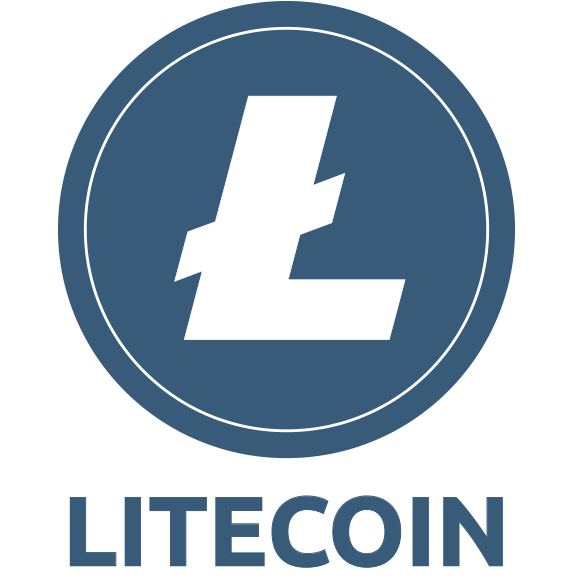
Litecoin network hashrate tripled in two months
At the end of April, mining hardware manufacturing company started shipping a whole stack of their products. It was the same time when the Litecoin hashrate was somewhere around 173,225 MH/s. The increasing exposure of Scrypt ASICs mining machines further influences other manufactures as well. In just two months since April, the Litecoin hashrate went up to 200$, while its mining difficulty also tripled.
The next Scrypt ASICs to hit the market will have the hashing power between 200 and 400 MH/s; indicating the possible surge in Litecoin mining difficulty and network hashrate as well. Some companies are also building hardware that can sustain hashing power up to 650 MH/s. As many believes, these events will somewhat impact the Litecoin standings in the market. The question however is, in which way?
The Litecoin community seems to have divided on this question. There is a section which believes that the increasing hashrate will have a fruitful impact on Litecoin prices, citing Bitcoin as a key instance; while another section does not acknowledge any relation between the Litecoin prices and its hashrate.
Explanations are coming from both sides, each with a unique perspective. The ones that support the prediction of Litecoin’s escalation believe it to be the network’s strength that will multiply by over 1,000 times in future. It is the economics of scale in mining that will play a major role in boosting the Litecoin’s stand in the market.
On the other hand, there are those who do not support this theory even in thoughts. They outright rubbish the history that certifies increasing hashrate proportional to the coin’s market cap. Their logic dictates a scenario in which miners are faced with increased selling pressures in order to cover their investments on such expensive mining hardware. This aims at a lower demand and higher supply rate that will eventually cause a huge drop in Litecoin prices. They event say that the current imbalance of Litecoin market is caused by such selling pressures.
Considering both the sections, we believe that market conditions have changed a lot since the launch of new cryptocurrencies in the market. The reason why BTC did so well after the increased hashrate was it being used only for trading. Litecoin too cashed only because of the bubble fuelled by China. The moment these coins were introduced to the real merchant world, its basics changed completely. Seeing today’s scenario, Bitcoin is backed by multiple major organizations while Litecoin is still far away from reaching this point. In short, the continual acceptance of BTC over LTC thickens the latter chances to repeat history. Hashrate increased or decreased, it won’t hold any meaning until Litecoin grabs some major investments from big players.
Open your free digital wallet here to store your cryptocurrencies in a safe place.

Shakil Khan: cryptocurrencies are here, embrace them
already disrupting payments and won’t be stopped, serial investor
Shakil Khan told the audience at Wired Money 2014. So get on board
with change.
much-misunderstood, unstable currency, to a more mature offering
that is finding its place in ecommerce and investor portfolios. So
rather than focus on regulation, which will only delay the
inevitable, the financial sector needs to focus on supervision and
take on the opportunities cryptocurrencies provide.
David Rowan, has invested in Spotify and YPlan, and advised teen
founder of Summly Nick D’Aloisio. But it was in 2012, when he first
heard about a payment company attempting to tackle the Bitcoin
ecosystem, that the cryptocurrency crossed his path. In the
following years, he found himself becoming a point-of-contact for
investors, suddenly intrigued by a currency that went from $10-25
per Bitcoin in 2012 to $260 in 2013.
entrepreneurs asking who is this company Mt Gox? Not because I was
the smartest person, but because there was a different wave of
people who weren’t publicly talking about Bitcoin. Morgan Stanley
was phoning me not because we had a relationship, but because
people were calling them and asking advice, and they were coming to
me.”
BitPay. That’s a lot of hard cash for a currency that dips and
peaks dramatically according to government opinion — for instance
when the FBI referred to it as a currency, Bitcoin became stronger;
when China restricted exchanges and warned it would keep an eye on
the currency, its value tumbled.
average consumer to participate in this — it’s the same as
stocks,” said Khan. We in the tech industry are more than familiar
with Bitcoin, beyond the Silk Road headlines, and those in the
financial sector have followed suit. But it is not yet something
that is impacting the average banking customer. “Right now, it’s
something that’s not for the faint hearted, just like stock trading
where people make 3 percent gains one day, and 25 percent losses
the day after.”
made in the cryptocurrency ecosystem — and this is because, as
Khan reiterated onstage, there is a “fundamental problem with
payments”.
three seconds. But if I want to pay someone 200 kroner online it’ll
cost be $32 and might take four days for the payment to arrive.
That makes zero sense, and cryptocurrencies solve this
problem.”
result of this, says Khan.
Andreessen Horowitz, Fred Wilson and Redpoint. This is a sector
everyone knows is going to get disrupted, and they need to be part
of that journey. Companies like Bit Pay were very early, now we
have ecommerce companies starting accepting Bitocin. Amazon has its
own plans on virtual currency.
then we had email. We’ve seen this over and over, and if you have
passion and an appetite for risk, why wouldn’t you? I don’t want to
turn around and five years say why wasn’t I part of this.”
evidenced by the stories being published by Khan’s own site
Coindesk, which are picked up by the likes of the Wall Street
Journal and Dow Jones. “Over the last 12 months it’s
much less of Silk Road, and more of Visa setting up a group looking
into cryptocurrencies and Western Union or Ebay looking into
Bitcoin.”
Bitcoin, Khan points out that the US $100 note is the chosen
currency of the criminal world — it’s what they’ll find in raids,
and its what the CIA drops in bales of cash into Afghanistan.
“They’re not sending smartphones, they were sending US dollars.”
Recently, the US government sold off the 30,000 Bitcoin it seized
during the Silk Road shutdown. Khan points, “I don’t remember the
US government selling cocaine seized from raids, so you can’t say
it’s illegal and shouldn’t be allowed.”
you don’t understand something, you get fearful of it.”
there is something attractive here for investors — Khan says the
coins, currently priced at $650 each, went for above that
value.
not broken. “I’m guessing there are laser printers out there
devaluing that money quicker than the paper can be printed,” Khan
said.
Open your free digital wallet here to store your cryptocurrencies in a safe place.



